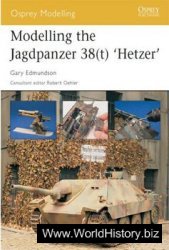Revolution came to Austria-Hungary only in the closing days of the war.
The country was a multinational empire with numerous restless groups
within it, but it survived more than four years of costly fighting. The empire
suffered shortages of food, fuel, and clothing, but even without using armed
force to maintain stability at home, the country's basic framework remained
solid until the fall of 1918.
The major source of tension within the empire of Franz Joseph was the
nationahties question. Constructed in the late seventeenth century, the
empire Hnked the historic German and Czech possessions of the Habsburg
family with newly acquired regions—inhabited by Hungarians and south
Slavic peoples—taken from a fading Ottoman Empire. Over the centuries,
Habsburg diplomacy and military efforts brought Italians and more south
Slavs like the Bosnians under the flag of the double eagle.
In 1867, in the last of the empire's configurations, the system was split
in two. In the western, or Austrian, half, the dominant role was occupied by
the German minority presiding over such restless groups as the Czechs and
Bosnians. In the eastern half, Hungarians ruled, implementing frequently
harsh policies of cultural assimilation directed at peoples like the Slovaks.
Up to 1914, even the most vocal representatives of the nonruling groups
spoke, at most, of shifting the system into federal form. Autonomy rather
than independence was the maximum program, with the Hungarians, jealous
of their status as co-rulers of the empire, the most immovable obstacle
to such a shift. As C. A. Macartney describes the situation before the war,
"It was still true that only a relatively small fraction of the peoples of the
Monarchy wanted to leave. In the great majority of cases they were still
manoeuvering for position within the existing Monarchy." 'O Moreover,
Austria-Hungary lacked the massive, alienated masses of peasants recently
removed from serfdom who made up the bulk of the Russian population.
Similarly, the country had made a slow, and not disastrously disruptive,
transition toward becoming an industrial power. Macartney says of the first
years of the twentieth century, "Materially, these were the most prosperous
years that the Monarchy had ever known." Industrial production was
increasing rapidly, emigration was draining off the excess population of
rural areas, and "the general material condition of most of the Monarchy
could be regarded as at least one of dawning well-being."




 World History
World History









